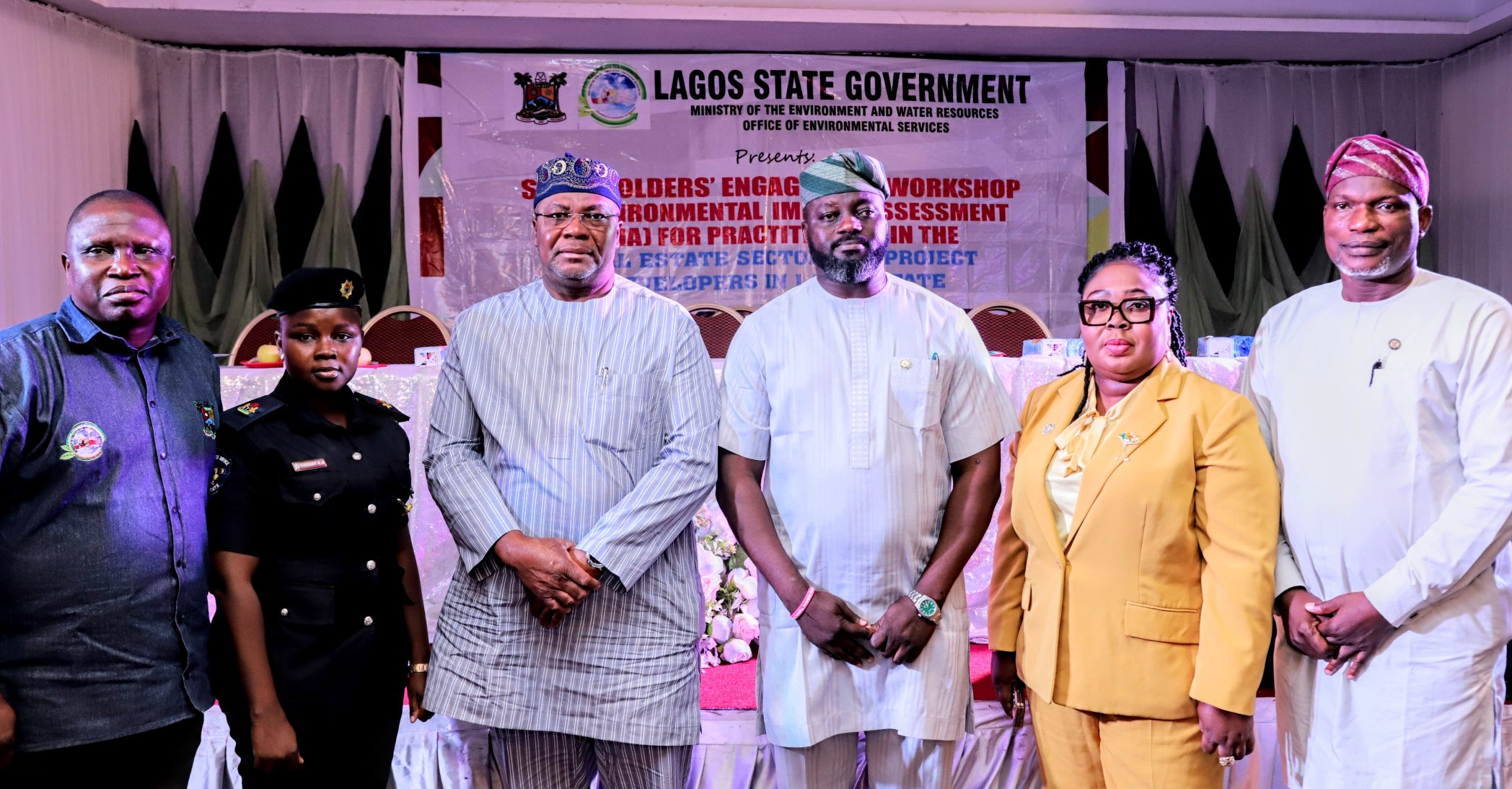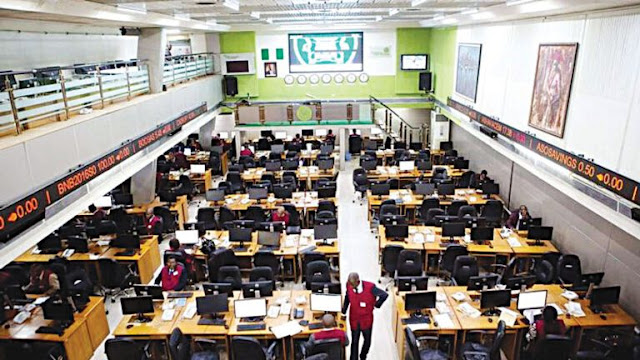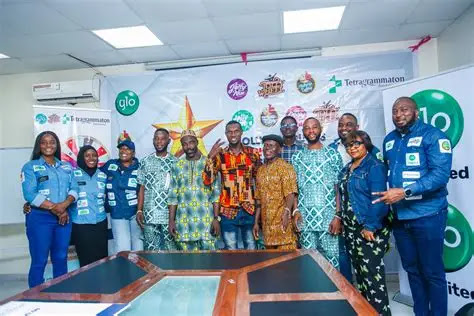BY BABAJIDE FADOJU

Lately in Lagos State, the Lagos Waste Management Authority (LAWMA) has been cracking down hard on people who break the rules about dumping waste. One case that caught everyone’s attention was the arrest of Mr. Ogunbadejo Olawale.
A resident of Ajiboye Street, Alapere, Ketu, he was caught on video throwing trash on the roadside near the Alapere Link Bridge. Because of this, he was taken to court and sent to Kirikiri Correctional Facility while he waits for his case to continue on June 26, 2025.
Ogunbadejo is one of the many that have been arrested and tried in the last year. Some might think arrests like this are too harsh, but they are very important. Lagos has a serious problem with waste and dirty environments, and for years, the city has tried many ways to fix it.
But with the city growing fast and many people ignoring the rules, things haven’t improved much. The state government, led by Governor Babajide Sanwo-Olu, is showing they mean business. This new tough attitude gives LAWMA the support it needs to get real results. Some have coloured it with strokes of tribalism but this has not stopped LAWMA from doing what counts.
What LAWMA Does
LAWMA is not just about picking up trash. They are responsible for making sure waste is handled properly across the entire state. That includes setting the rules, working with private waste companies, teaching people how to manage waste better, and punishing those who don’t follow the rules.
In the past, LAWMA couldn’t do all this effectively because of lack of resources and people ignoring their efforts. But now, things are changing. With strong backing from the government, LAWMA can finally act like the powerful agency it was meant to be.
Arresting someone for dumping trash on the roadside shows that LAWMA is serious. The message is simple: nobody should think they can get away with polluting Lagos anymore.
LAWMA also plays a vital role in working with communities and schools to promote environmental education. They hold sensitization campaigns, engage traditional rulers and religious leaders, and use mobile trucks with megaphones to spread messages about proper waste disposal. These actions help build a city-wide culture of cleanliness.
Like the MD, LAWMA Dr Muyiwa Gbadegesin puts it while responding to inquiries on the social media platform, X, “the suspect will also be subjected to psychiatric tests. It’s necessary!”
Since resuming office as Commissioner for the Environment and Water Resources, Mr. Tokunbo Wahab has worked hard to clean up Lagos. He’s improved the waste collection system, started new public education campaigns, and now he’s making sure that the laws are enforced.
When Mr. Wahab spoke about Mr. Olawale’s arrest, he clarified that this behavior will no longer be accepted. He said surveillance across the city is being increased and people who break the rules will be caught and punished. In other words, the days of ignoring the rules are over.
Mr. Wahab is using both rewards and punishments. LAWMA offers many ways for people to get rid of their waste properly—like private sector waste collectors (PSP), recycling programs, and public waste bins. But if people still decide to break the law, they’ll face the consequences.
His leadership has boosted morale at LAWMA. Workers there now feel supported and confident to do their jobs. People also take the agency more seriously now.
He has also introduced technology-based monitoring systems to enhance enforcement. These include surveillance cameras at known dumping hotspots. The increased accountability has made a noticeable difference in many communities.
Why Arrests Like These Are Important
People might say arresting someone over trash is too much. But think about this: Lagos produces around 13,000 metric tonnes of waste every single day. That’s a huge amount. If people just dump it anywhere—on roads, in gutters, or empty spaces—it causes flooding, diseases, and makes the city look bad.
Arresting people is not just about punishment. It’s about sending a message. When people see that there are real consequences, they’re more likely to follow the rules. It makes everyone think twice before dumping trash where they shouldn’t.
Also, the government is investing a lot of money in better roads and drainage systems. But all that effort is wasted if trash keeps blocking the gutters and dirtying the streets.
Furthermore, the health impact cannot be ignored. Uncontrolled waste leads to the breeding of disease-carrying pests like mosquitoes and rats. This in turn results in outbreaks of illnesses like malaria, cholera, and Lassa fever. Arrests and prosecutions serve as strong deterrents against actions that put public health at risk.
Governor Sanwo-Olu’s Big Vision for a Cleaner Lagos
Governor Babajide Sanwo-Olu has a big plan for Lagos. He wants it to be a modern city that can attract tourists, investors, and provide a good life for everyone who lives there. Cleanliness is a huge part of that plan.
A cleaner Lagos is not just about looking good. It helps reduce disease, improves business, boosts pride in the city, and makes life better for everyone. That’s why the Governor is giving LAWMA more money and more support to do its job properly.
Through his THEMES agenda, especially the parts that focus on health and the environment, the government has done things like clear out blocked drains and clean up Lagos waterways. But if people still dump trash where they shouldn’t, those efforts won’t matter much. That’s why it’s so important to also punish those who break the rules.
The Governor has also emphasized the need for inter-agency collaboration. Ministries and agencies now work more closely with LAWMA, ensuring waste management efforts are not working in isolation but as part of an integrated system that addresses Lagos’ urban growth challenges.
Citizens Must Help Too
Government action is key, but it’s not enough by itself. Every resident in Lagos has a part to play. People should use the proper bins, work with the PSP waste collectors in their area, join in clean-up activities, and even report others who are dumping trash illegally.
LAWMA can’t clean Lagos alone. But if the people of Lagos support them, the city can become one of the cleanest in Africa.
The recent arrests should wake everyone up. This isn’t about shame, it’s more about creating and enforcing a new culture. One where everyone understands that keeping Lagos clean is their responsibility too.
Neighborhood associations, schools, and religious institutions should take the lead by organizing regular sanitation days and workshops. By turning cleanliness into a community value, we reduce the pressure on LAWMA and help create sustainable change.
More Than Just Arrests and Enforcements
Arrests are important, but they should be part of a bigger plan. LAWMA and the government should keep talking to communities, teaching young people, and finding creative ways to reward good behavior.
Schools should teach environmental responsibility, and leaders in communities and places of worship should encourage people to keep their areas clean.
Technology can help too. Apps that allow people to report illegal dumping, track clean-up efforts, and even reward good behavior can make a big difference. But whatever tools are used, the government must stay open, fair, and accountable.
The use of data analytics to identify hotspots and evaluate the effectiveness of interventions could also boost results. It would help in better planning, resource allocation, and reporting outcomes back to the public.
The arrest of Mr. Ogunbadejo Olawale and others goes beyond enforcing rules. It’s about showing that Lagos is ready to change. It says clearly that the government, especially LAWMA, is serious about cleaning up the city.
With strong leaders like Governor Sanwo-Olu, Commissioner Wahab and Dr Muyiwa Gbadegeshin backing these efforts, LAWMA now has what it needs to succeed. But real change will only happen if everyone gets involved—government, agencies, and regular citizens alike.
Lagos can be clean. LAWMA needs our help. And we all deserve to live in a city where clean streets and healthy surroundings are the norm, not the exception.








